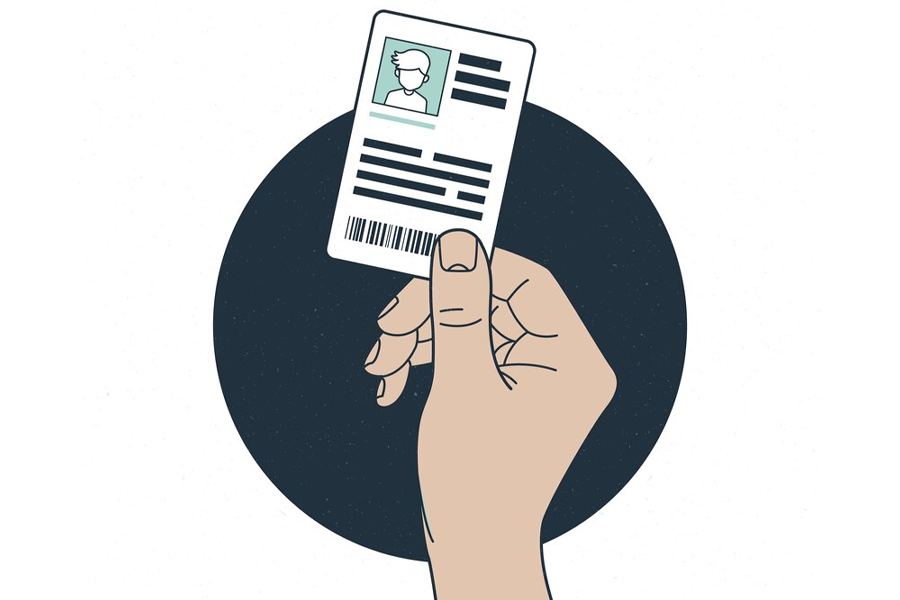
Starting your business is exciting – but wait, have you registered a TIN yet?
Your tax identification number (TIN) is one of the most important legal documents you’ll need to operate legally in the country. Without it, you can’t get any registration-related matters rolling.
But just like all government processes tends to be messy and complex, acquiring your tax identification number (Indonesia) is no exception. So in this article, we break down everything you need to know about this all-important number, and how you can acquire it.
Take the first steps for your business journey. Read here and register your TIN!
What is Tax Identification Number and Why It Is Important
Starting a business in Indonesia is an attractive option for entrepreneurs, considering its strong economic performance and increasing foreign investment.
The economic environment supports new ventures with a GDP growth rate of 5.31% in 2022 and increasing Foreign Direct Investment (FDI) from countries like Singapore, Hong Kong, China, and Japan.
Moreover, Indonesia’s trade dynamics are robust. Exports are surging by 26.07% to reach US$291.98 billion while imports are growing by 21.07% to US$237.52 billion in 2022. This underscores a vibrant market and increasing consumer demand.
To tap into this potential through e-commerce or any business, you’ll need a Tax Identification Number (TIN) in Indonesia.
A TIN, known locally as NPWP (Nomor Pokok Wajib Pajak), registers you with Indonesian tax authorities. It’s mission-critical for handling all tax matters, from filing tax returns to qualifying for government services and benefits.
For e-commerce businesses specifically, a TIN establishes you as a legitimate entity and facilitates smooth transactions, especially in managing taxes from online sales. This becomes even more relevant as you scale and transact with a larger volume of customers and higher sales volumes.

The TIN Registration Process for Businesses
Despite the necessity and advantages of this document, obtaining and managing an Indonesian tax ID comes with challenges. This can cost you plenty of time and resources that’s better spent improving your business.
The next sections will simplify these steps and help you set a solid foundation for your business success in Indonesia.
Application Requirements: What You Need for Your TIN
Learning the application requirements for a Tax Identification Number (TIN) in Indonesia ensures that your business complies with local tax laws from the start.
As a potential entrepreneur, you will need to prepare several key documents:
- Valid Identification Card (KTP): Applicants must provide a valid Indonesian ID card (KTP). You can obtain this from the local civil registry office.
- Family Card (Kartu Keluarga): This card details the family composition and is required to verify residential and family status. Get it from the local civil registration office.
- Application Form: The tax number application form for a TIN must be filled out and submitted. This form is available online on the official Directorate General of Taxation website or at local tax service offices.
- Personal Details: Applicants must provide personal details such as full name, address, date of birth, and occupation.
- Proof of Address: A utility bill or any other document that proves the applicant’s address may be required.
- Company Registration Documents (if applicable): These include your company’s deed of establishment and Ministry of Law and Human Rights approval. You obtain these from a public notary and the Ministry upon registration.
- Work Permit for foreign nationals (if applicable): This is required to prove that you are legally permitted to work and conduct business in Indonesia. You can obtain this from the Indonesian Ministry of Manpower.
Ensure you have the most current versions of these documents. Check with the Directorate General of Taxes (DGT) for any updates or additional requirements specific to your business type.
Prepare these documents well in advance. Knowing what they are from the get-go saves you time and effort in the long run. Ensuring you meet all application requirements helps avoid these pitfalls and paves the way for a smoother business journey in Indonesia.

Government Tax Regulations in Indonesia
Understanding government tax regulations in Indonesia helps you comply with local laws and avoid legal issues.
As an entrepreneur, you should be aware of several key taxes:
- Corporate Income Tax: Companies in Indonesia are subject to a corporate income tax on their worldwide income. The standard rate is generally 22%, but it was temporarily reduced to 19% for 2022 and is set at 20% from 2022 onwards. Small enterprises may qualify for a lower rate.
- Value Added Tax (VAT): VAT is imposed on most goods and services at a standard rate of 10%. Certain transactions are exempt, and others can be taxed at a reduced rate or zero rate, especially for exports.
- Withholding Tax: Businesses must withhold tax on payments to residents and non-residents for services rendered, such as fees for technical services, royalties, and rent. The rates vary depending on the nature of the payment and the recipient’s residency status.
- Land and Building Tax: This tax is imposed on the ownership of land and buildings, typically at rates that vary depending on the location and usage of the property.
- Luxury Goods Sales Tax: This is an additional tax on the import or delivery of certain luxurious goods. The rate varies depending on the category of goods.
As a business in Indonesia, you must maintain proper accounting records, file annual tax returns, and make monthly or annual tax payments depending on the tax type. For detailed guidance, consult with a local tax professional or directly with Indonesian tax authorities.
TIN Verification: Ensuring Tax Compliance in the Nation
TIN verification is confirming that the Tax Identification Number (TIN) provided by individuals or businesses is valid and registered with the Indonesian tax authorities. This step is crucial for conducting transparent and legal business transactions
TIN verification ensures you are valid and registered with the Indonesian tax authorities. Also, engaging in business with entities that have invalid or unverified TINs can lead to tax disputes or penalties from tax authorities.
Before learning the steps for TIN verification, take note:
For an individual taxpayer who is an Indonesian resident, you can identify their TIN using their National Identity Number (NIK).
Starting from 2022, the NPWP for resident individual tax IDs is the same as their NIK. The identification number format is a 16-digit number issued by the government.
This can be verified through the individual’s National Identity Card.
For non-resident individual, corporate, and government agency taxpayers, you can verify using an NPWP Card or e-NPWP Card.
For these taxpayers, a unique 16-digit NPWP is issued by the Directorate General of Taxes. The number can be verified by checking the NPWP card or the electronic NPWP card (e-NPWP card).
General TIN Verification Process
There are several steps involved in verifying the TIN of an entity or an individual. You can use different methods depending on whether you are verifying an individual or corporate NPWP.
Here are the methods available:
- NPWP Card or e-NPWP Card: Both physical and electronic versions of the NPWP card display the taxpayer’s NPWP number and can be used for verification purposes.
- Official Tax Services Portal: You can use official online platforms like the Directorate General of Taxes website, where you can input the NPWP to check its validity and status.
- Contacting Local Tax Office (KPP): For more detailed inquiries or verifications, visiting or contacting the nearest local tax office can provide direct assistance and access to tax records.
It’s also possible to use external platforms like the Indonesia TIN Check Official Platform, which offers online verification services to ensure compliance with local tax laws. Use the Directorate General of Taxes’ resources or services for accuracy.
TIN Renewal Procedure: What You Should Know
TIN renewal involves updating your details with the authorities. This is only necessary if there are changes in your business information, such as changing address or company structure.
Renewing your details ensures that all your business details are current and correct in the tax system. Accuracy is essential for smooth interactions with tax authorities, including compliance with tax filing and payment obligations.
Even the smallest mistakes can cascade into bigger problems down the line. It can delay tax filings, net you fines, and even make it difficult to obtain financial services or documents that require up-to-date tax registration details.
Ensuring current TIN avoids these complications, keeping your business compliant and in good standing with tax authorities.
Identity Verification and Validation for Tax Compliance
This involves confirming that the personal and business information provided to the tax authorities is accurate and matches official documents.
The Directorate General of Taxes (DGT) under the Ministry of Finance verifies your information. The validation process ensures that your identification record is correct and you are the legitimate holder of your tax identification number (TIN).
They ensure that all taxpayers are correctly identified and that their information matches what is officially recorded. This process prevents tax fraud and ensures compliance with tax laws.

Interaction with the Indonesian Tax Authority
When you register for a Tax Identification Number (TIN) in Indonesia, you will interact with the Indonesian tax authorities at several key points.
The first time is when you submit your TIN application and required documents, either online through the official tax authority website or in person at a local tax office (Kantor Pelayanan Pajak, KPP). This is when your documents and eligibility are verified.
You’ll interact with them more if they have questions about your application, or if you need to submit more requirements.
Once your TIN is issued, you must communicate any updates or changes to your tax status to tax officials. This ensures that your records are current and accurate.
Proper communication can help you receive timely guidance on tax matters, understand your obligations, and take advantage of any tax benefits or exemptions for which you may be eligible.
On the other hand, failing to interact properly with tax authorities can lead to non-compliance, delays in requirements, and even potential audits. Miscommunication might also result in paying incorrect tax amounts – either over or under – which can further complicate your financial responsibilities.
Personal TIN vs. Business TIN: Key Differences
Knowing the difference between personal and business TIN will help you file the proper tax forms and manage your legal obligations.
A personal TIN is for individual tax duties, while a business TIN is for companies to comply with corporate tax requirements.
Here are their key differences:
- Purpose: A personal TIN is used for individual tax filings related to employment income, personal investments, and other income taxes. A business TIN application is for filing and paying taxes related to business activities.
- Applicability: The personal TIN applies to all working individuals, whereas the business TIN is required for entities engaging in commercial, professional, or vocational activities.
- Tax Returns: Personal tax returns typically involve salaries and personal earnings. Business tax returns cover profits, VAT, and other taxes related to business operations.
As a business in Indonesia, you must know what type of TIN you have or must register for.
Not knowing the difference leads to serious issues. You might incorrectly file personal income under a business TIN or vice versa, leading to inaccurate tax submissions. Such mistakes can trigger audits, fines, or legal actions from tax authorities.
The Criteria for TIN Issuance
Knowing the specific criteria for Tax Identification Number (TIN) issuance in Indonesia ensures that you get this important documentation without delays or complications.
Whatever kind of business you are, here are TIN issuance criteria:
- Eligibility: Individuals who earn income and businesses operating within Indonesia are required to obtain a TIN.
- Documentation: Individual taxpayers must provide a valid identity card (KTP for locals and passport for foreigners) is needed. On the other hand, businesses must provide company registration documents and proof of location (e.g., lease agreement).
- Registration registration in Indonesia: Application can be done in person at the local tax office or online via the Directorate General of Taxes website, depending on your taxpayer type.
If you attempt to register without the proper documents or without meeting the eligibility requirements, your application may be rejected. This can delay your ability to legally operate a business, process essential transactions, or comply with Indonesian tax laws. You can even face penalties.
Understanding and preparing according to these criteria helps ensure a smooth registration process.

Frequently Asked Questions
What does a tax ID card look like?
Your taxpayer identification document typically resembles a standard ID card. It includes personal info, tax identification code, photo, and signature, along with the issuance and expiry dates. It’s usually a plastic card, similar in size and shape to a credit card.
What are the consequences of not following tax compliance in Indonesia?
Your business will suffer severe consequences if you don’t follow registration guidelines and tax compliance. You can’t legally conduct business, face restrictions in financial transactions, and incur penalties.
Can a foreigner apply for a business TIN in Indonesia?
Yes, foreigners can apply for a business TIN in Indonesia. They must provide a valid passport, a work permit, and company registration documents including proof of business location and approval from the Ministry of Law and Human Rights.